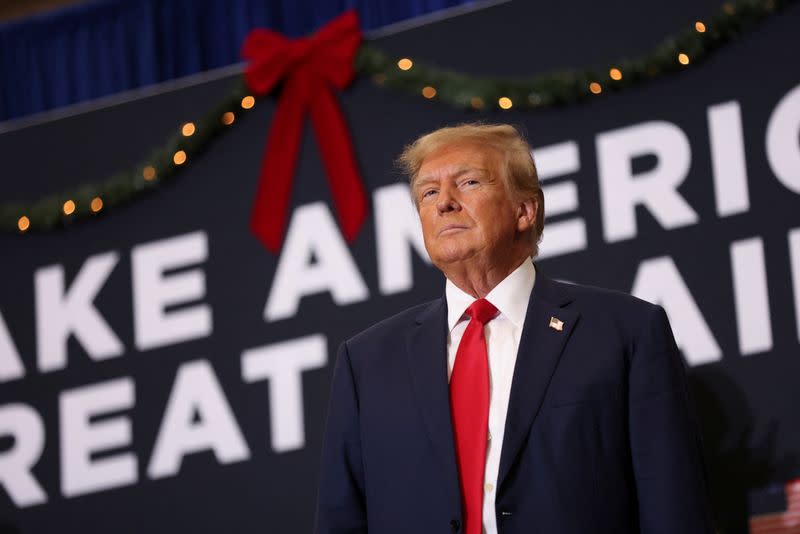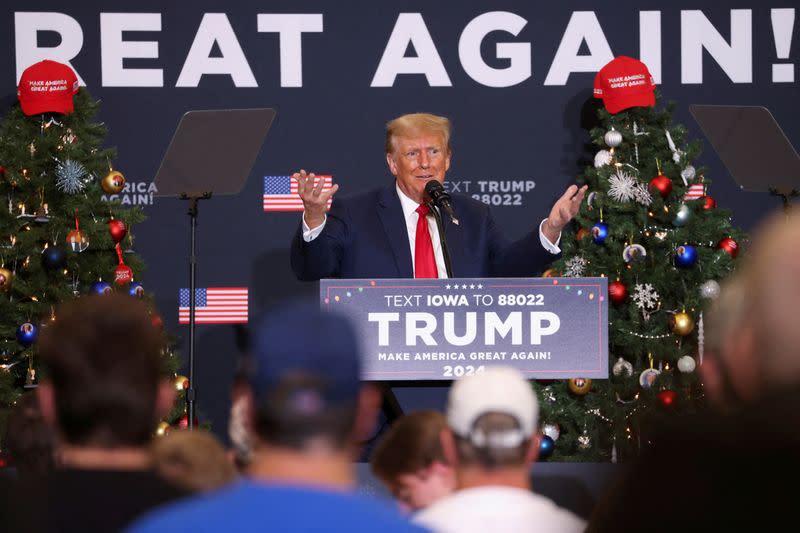Supreme Court rejects prosecutor's request, will not rule on Trump immunity yet
- Oops!Something went wrong.Please try again later.
- Oops!Something went wrong.Please try again later.
By John Kruzel
WASHINGTON (Reuters) -The U.S. Supreme Court on Friday declined to immediately decide former President Donald Trump's claim that he cannot be prosecuted for trying to overturn his 2020 election defeat, allowing a lower court to continue reviewing the issue.
The justices, rebuffing an extraordinary request by U.S. Special Counsel Jack Smith, refused to effectively leap-frog a lower appeals court to speed up a final ruling on Trump's claim of criminal immunity ahead of his trial, due to begin in March.
The court issued its decision without explanation in a brief one-page order. No justice publicly dissented. The justices could still decide to consider the issue later.
A federal appeals court in Washington has fast-tracked its consideration of the issue, and scheduled oral arguments for Jan. 9.
In a statement to supporters, Trump labeled the Supreme Court decision as a victory but added "I will still have to fight for my rights in the Appeals Court."
A spokesperson for Smith declined to comment.
Prosecutors have accused Trump, the frontrunner for the 2024 Republican presidential nomination, of attempting to obstruct Congress and defraud the U.S. government through schemes to reverse Democratic President Joe Biden's 2020 election win.
Trump has argued that the case should be dismissed on the grounds that former presidents cannot face criminal charges for conduct related to their official responsibilities.
U.S. District Judge Tanya Chutkan rejected that claim on Dec. 1, prompting Trump's appeal to the U.S. Court of Appeals for the District of Columbia Circuit. Trump's appeal suspended his trial, currently set for March.
In a bid to avoid delaying Trump's trial, Smith on Dec. 11 urged the Supreme Court to undertake an expedited ruling - even as the D.C. Circuit court races to rule on the issue.
If Trump is reelected to the White House on Nov. 5, he could seek to pardon himself of any federal crimes.
Trump's lawyers opposed Smith's request, telling the justices in a court filing the special counsel's bid to bypass the normal appellate process amounted to a "rush to decide the issues with reckless abandon."
Three of the nine Supreme Court justices were appointed by Trump, who cemented a 6-3 conservative majority.
(Reporting by John Kruzel, Andrew Goudsward and Kanishka Singh ; Editing by Scott Malone, Chizu Nomiyama and Daniel Wallis)


